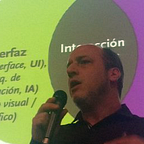Our Rule #1 for Strategic Consulting: “Things are done right, or they are done again.”
It might be that the ones who redo it and get it right are not us… but our competitor, learning from our mistakes.
Therefore, it’s always better to do things right from the beginning.
Despite it being so simple and even obvious to invest in quality, the usual focus is on being quick and cheap.
As a result:
- Rushed people make mistakes.
- People who build technology in a rush make mistakes that technology multiplies.
- Mistakes can be learned from, but only if there’s the capacity to analyze them — which is impossible if we remain in a rush and, worse yet, under increasing pressure from accumulating errors. Any learning opportunity will be left for the competition.
- To make matters worse, our inability to recognize and correct our mistakes will crystallize as sunk cost and technical debt, hindering all future progress. The competition, however, will have a clear path.
In a competitive industry, if we are not the example, we are the warning.
Replacing purpose with urgency results in business suicide: enlightening the competitors, handing them the business on a silver platter, and multiplying all the investment in development and advertising by zero.
Some Exemplary Cases:
MySpace (2007): MySpace prioritized rapid growth without adequately investing in platform improvement. Usability issues, security problems, and a cluttered interface drove users away. Facebook and Twitter learned from MySpace’s mistakes, offering cleaner and safer user experiences. MySpace lost its user base and relevance, eventually being sold for a fraction of its previous value. As I write these lines, MySpace allows login with… Facebook or Twitter.
Windows Phone (2010): Microsoft rushed the launch of its mobile operating system to compete with iOS and Android. The operating system lacked many applications and features compared to its competitors. The lack of adoption by consumers and developers resulted in Microsoft’s eventual withdrawal from the mobile market, while Apple and Google consolidated their dominance in the mobile market.
BlackBerry PlayBook (2011): BlackBerry launched the PlayBook to compete with the iPad, in such a rush that it was released without a native email client. Poor sales and loss of market share hurt BlackBerry, which is no longer with us.
Google Glass (2013): Other companies learned from Google’s mistakes to develop their own augmented reality technologies. Google ended up discontinuing the product, losing the initial investment and market potential.
Samsung Galaxy Note 7 (2016): Samsung rushed its release to compete with the iPhone 7. The result was defective batteries causing fires and explosions. Massive recalls and loss of trust resulted in enormous financial and reputational costs for Samsung, which were capitalized on by Apple and other competitors.
And finally, the biggest catastrophe in the aerospace industry in the last 20 years, the Boeing 737 MAX (2018): Boeing rushed its development to a level of criminal recklessness. 346 deaths led to the global grounding of the fleet, causing financial losses, a negative impact on Boeing’s reputation, and an opportunity for Airbus. Boeing’s financial losses total more than $120 billion to date:
- In January 2020, the company estimated a loss of $18.4 billion for 2019.
- In March 2020, Boeing sought a $60 billion bailout, causing a sharp drop in its stock price. Eventually, Boeing received $17 billion in coronavirus stimulus funds.
- As of the FAA recertification in November 2020, Boeing’s net orders for the 737 MAX had decreased by more than 1,000 aircraft, with 448 orders canceled and 782 orders removed from the backlog because they were no longer reliable enough to trust.
- The total estimated direct costs of the MAX groundings were $20 billion, and indirect costs exceeded $60 billion.
- On January 7, 2021, Boeing agreed to pay more than $2.5 billion after being accused of fraud.
- After its intention to suspend production in December 2019, Boeing estimated an additional cost of $6.3 billion to deliver the 737 MAX program.
Only experience can build great experiences.
To help our strategic consulting clients make better decisions, at Kambrica we developed Experience Decision Making: a consistent system applied in real projects that allows for the timely identification and correction of patterns leading to failure.
The formula for success may be elusive, but one condition is undeniable: not making mistakes that could have been anticipated with experience, nor mistakes so costly they could have been mitigated with rational decision-making processes.
